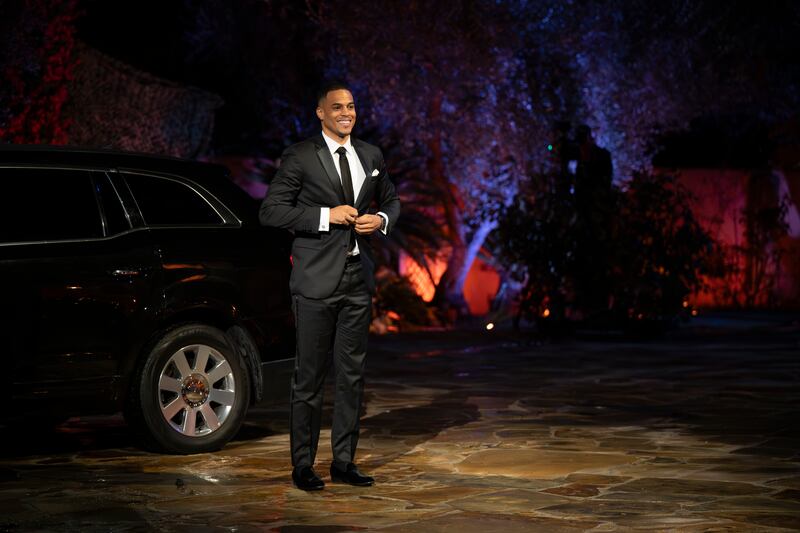This article was first published in the State of Faith newsletter. Sign up to receive the newsletter in your inbox each Monday night.
I spent most of last week thinking about and talking about and writing about Pew Research Center’s major new study on the American religious landscape.
As you’ve probably heard by now, the study revealed the rise of religious “nones” and corresponding decline in the U.S. Christian population has stabilized.
As of 2024, 62% of American adults identified as Christian and 29% said they were religiously unaffiliated. Those figures are nearly unchanged since 2019.
Pew also found that interest and belief in spiritual concepts has remained high even as it’s become less common to attend church or identify as religious.
Eighty-six percent of U.S. adults believe people have a soul or spirit in addition to a physical body, 83% believe in God or a universal spirit and 79% believe there is something spiritual beyond the natural world, according to the survey.
During Pew’s press briefing on Feb. 19, a sociologist who consulted on the study emphasized those “remarkable” numbers and noted that they likely stem, at least in part, from spirituality’s emergence in public spaces that were once entirely secular.
Today, you don’t have to go to a house of worship to hear about caring for your soul or connecting with a higher power. Those ideas are front and center during mindfulness lectures at libraries, chats with humanist chaplains on college campuses and in the self-help books on sale at the airport.
“There are plenty of places where spiritual practices are being maintained outside of religious institutions,” said Penny Edgell, who works at the University of Minnesota.
The list of places includes the world of reality TV.
As I’ve watched the current seasons of “The Bachelor” and “Love is Blind,” I’ve been struck by how many of the contestants embody the trends described in Pew’s report.
They’re interested in God but only loosely connected with religious institutions. They talk about faith but not necessarily having a religion. They are clear about not wanting to judge people from different religious backgrounds.
To traditional believers, these characteristics might be off-putting. But religion experts say faith leaders should learn to embrace them if they want to see religious institutions grow.
“To the extent that religious communities can address spiritual concerns, they may very well draw people back in. If that happens, the pause (in the decline of organized religion) will become a plateau and the plateau may ultimately become growth,” John C. Green, a political scientist at the University of Akron who consulted with Pew on the new study, told me.
Fresh off the press
The biggest surprise in a major new report on American religion
Short on time? Here are key takeaways from Pew’s huge new religion study
Survey shows Utah’s religious landscape is slightly different than you might guess
Best actor winner tosses gum then thanks God
Conservative commentators thought this speech was the best part of the Oscars
Latter-day Saints were in a ‘Bachelor’-sized spotlight last week
Term of the week: Mennonites
The Mennonites are a small Anabaptist denomination. Think of them like a sibling or cousin to the Amish.
Like other Anabaptists, many Mennonites — but not all — avoid modern conveniences like smartphones and view certain secular institutions, such as public schools, with suspicion.
“Some Mennonites have largely assimilated into mainstream culture and dress, with a focus on working for peace and social justice in the larger society. Other Mennonites maintain traditions similar to the Amish, with tight-knit, separatist communities marked by such things as limited technology, nonviolence, male leadership and traditional dress, including women’s head coverings,” per The Associated Press.
Mennonites in Texas are currently being scrutinized as the state deals with a measles outbreak.
While the faith group does not officially oppose vaccination, many members either avoid vaccines or fall behind on the typical sequence because of skepticism about modern medicine.
“More culturally conservative Mennonite (and Amish) groups have tended to be under-immunized or partially-immunized,” said Steven Nolt, professor of history and Anabaptist Studies at Elizabethtown College in Pennsylvania, to the AP.
What I’m reading ...
Wednesday is Ash Wednesday, the Christian holiday that marks the start of the season of Lent. Since Pope Francis remains hospitalized, the Vatican is adjusting its typical Ash Wednesday events. “The Pope usually begins the Ash Wednesday ‘stational’ liturgy at the church of Sant’Anselmo before leading a penitential procession to the Basilica of Santa Sabina on the Aventine Hill, where he celebrates Mass. Since Pope Francis is in Rome’s Gemelli Hospital to receive treatment for bilateral pneumonia, he has delegated (Cardinal Angelo De Donatis) to preside in his place,” Vatican News reported.
June will mark the 10th anniversary of the Supreme Court ruling that legalized same-sex marriage nationwide. But marriage law isn’t as settled as you might think — lawmakers in at least nine states are working to overturn the 2015 ruling, according to NBC News.
A couple of weeks ago, I highlighted Ross Douthat’s argument in favor of organized religion. Now, I’m sharing an article from The Atlantic that explores how his argument landed with an atheist.
Odds and ends
Grab your calendar. We now know the dates for oral arguments for the Supreme Court’s three upcoming religious freedom cases.
- Monday, March 31: Catholic Charities Bureau v. Wisconsin Labor & Industry Review Commission
- Tuesday, April 22: Mahmoud v. Taylor
- Wednesday, April 30: Oklahoma Charter School Board v. Drummond
Happy seventh anniversary to my husband, Mike!


